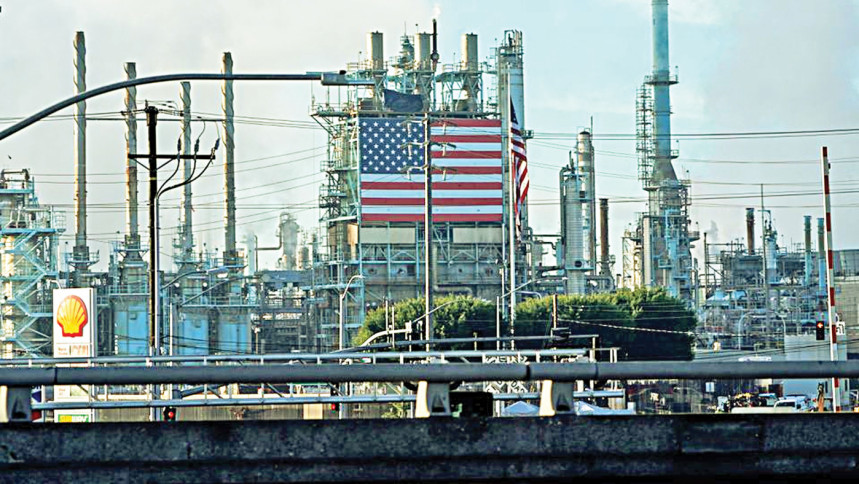US oil refiners set for first profit during pandemic

US oil refiners are set to post their first quarterly profit since the Covid-19 pandemic, even though higher oil prices and weaker margins in June have tamed analysts' optimism fostered by the rebound in fuel demand.
US gasoline and diesel fuel demand has nearly recovered to 2019 levels following the plunge in travel and business activity during the worst of the coronavirus pandemic in 2020. Refiners ramped up processing on the back of the resurgence in activity, but are also grappling with higher crude oil prices, which have surged 48 per cent this year.
The top three US independent refiners - Valero Energy Corp , Phillips 66 and Marathon Petroleum Corp - are projected to report combined net income of about $675 million in the second quarter.
That would be down from $1.3 billion in profit forecast just 30 days ago, and analysts are concerned that the resurgence in coronavirus cases will undermine economic demand.
"There is a fear that second quarter could be peak earnings for the group this year," said Cowen and Co analyst Jason Gabelman.
US crude has rallied nearly 24 per cent in the quarter, and while prices of transportation fuels tend to pick up in tandem, prices of other products like naphtha, asphalt and propane tend to lag the increase, squeezing margins.
The US Energy Information Administration earlier this month forecast US liquid fuels consumption in 2021 to rise by 1.5 million barrels per day from 2020. Gasoline product supplied rebounded in the second quarter to levels not seen since prior to the pandemic's beginning.
That has analysts optimistic about coming reports, after the top three refiners lost $1.3 billion in the first quarter, according to Refinitiv IBES data. Valero reports its earnings on Thursday, followed by the other two next weeks.
Going forward, the spread of the highly transmissible Covid-19 Delta variant is threatening the nascent recovery in travel, with the United States saying this week that it will not lift any existing travel restrictions "at this point."
Refining margins started to decline in June, falling to about $19.11 per barrel at the end of the month, compared with $20.42 at the end of the first quarter, Refinitiv Eikon data showed. In the second quarter, blending ethanol into gasoline also hurt margins as price for the corn-based fuel was at a rare premium to gasoline, analysts said.
Refiners also had to pay more for US renewable fuel credits, which touched a record $2 in the quarter. The cost for Renewable Identification Numbers (RINs) - the credits used for compliance with US biofuels blending laws - increased by 22 cents each to $1.54 at the end of June from $1.32 at the end of the first quarter.
Refiners are required, by law, to blend biofuels into their gasoline pool, or pay up so others can do the same.
The pandemic has reduced blending activity generally, and as a result, fewer credits have been issued, increasing their costs.
Delta Airlines' refinery in Trainer, Pennsylvania, in early July posted a $157 million operating loss in the second quarter, in part due to the higher costs associated with blending biofuels into its products.
"The demand trends have been pretty encouraging and unless there is another set of lockdowns. That's not really the problem. The problem has been a bit more on the RIN cost side of things" said Matthew Blair, analyst at Tudor Pickering Holt and Co.
Source: www.thedailystar.net
